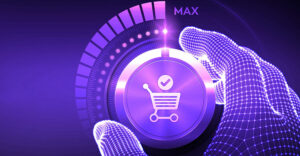Consumers have a strong appetite for gift cards and gifting alcohol. But until now, they could not do both with a branded gift card. The market had none.
Beverage alcohol e-commerce platform company Thirstie on Tuesday announced the first-ever alcohol-branded gift cards with major liquor brands.
A recent Thirstie poll of over 2,000 adult Americans 21 years or older found there is an overwhelming interest in liquor-branded gift cards. Given the choice, nearly twice as many consumers would give a gift card for alcohol over a bottle, according to Thirstie’s consumer survey conducted in Spring 2021 by Swytchback.
Additionally, high-income consumers’ demand for a top-selling vodka brand gift card is 84.4 percent, exceeding the demand for leading retail gift cards, such as Apple at 76.9 percent and Starbucks at 76.5 percent. The survey also showed that 77 percent of consumers prefer premium and value-branded gift cards, criteria that many liquor portfolio companies represent.
Thirstie’s technology platform connects beverage alcohol brands with consumers. Its gift-card solution is the first and only of its kind in the United States.
“We were working to solve a very real pain point with our industry, which was how to most effectively drive consumers to adopt branded e-commerce storefronts,” said Thirstie CEO and co-founder Devaraj Southworth.
The unique card solution resulted from thinking completely out of the box and pushing the boundaries of innovation, he said. The innovative approach enhanced consumer behavior that already exists rather than trying to force consumers to try something completely unfamiliar to consumers.
Bringing the first and only liquor-branded gift card solution to both the beverage alcohol and gift card industries will further connect consumers to Thirstie’s brand partners’ e-commerce experience, he explained.
Viable Money Backing
Digital behaviors around gifting in both gift card and alcohol-gifting industries continue to accelerate. The pandemic and supply-chain issues drove that growth, noted researchers at Blackhawk Network. About 75 percent of millennials prefer to receive gift cards over physical presents, said researchers.
Across all Thirstie-powered storefronts, 12 percent of all e-commerce orders were gifts. That sales growth jumped to 22 percent in December 2020, as per Thirstie. Within the gift card sector, online purchases of gift cards more than doubled in 2020, outperforming the growth in 2019, according to Research and Markets.
The beverage alcohol and gift card industries have both seen significant gains year over year. That growth is expected to continue. The global beverage alcohol market is expected to reach $736 billion, Research and Markets reports.
Exceeding that market size and growth is the global gift card industry. Allied Market Research projects the global gift card industry to reach $1.1 trillion by 2030.
Allied’s market research valued the size of the industry at $258.34 billion in 2020. The company projected the industry to see a compound annual growth rate (CAGR) of 15.8 percent from 2021 to 2030.
How It Works
Thirstie-powered gift cards will enable liquor brands to connect with their consumers through a full omnichannel approach. Gift card recipients can only redeem their gift cards through merchant sites affiliated with Thirstie.
Brands now have the ability to offer gift cards through both their online storefront and in-store purchases. That dual outlet will drive consumer traffic to affiliated vendors’ digital stores.
Liquor-branded gift cards will undoubtedly transform two multi-billion-dollar industries, according to Southworth. Thirstie’s mission always will be to redefine the way consumers are interacting with their favorite brands.
“By putting brands in a position of control where they have the ability to directly connect with their fanbase, we have been able to solve a major pain point within the beverage alcohol industry,” he said.
His company is taking one step further in fulfilling that mission by bringing this innovative solution to the market and helping brands drive consumer adoption to their e-commerce sites, thus meeting consumer demand while doing so, he added.
Increase Revenue Without Marketing
Thirstie partners exclusively with retailers having their own local delivery mechanism or can ship products in states permitted by law. The company also works with duly licensed retailers who make interstate retail sales of alcoholic beverages. But the consumers must reside in states that permit such sales.
The process is automated by Thirstie for affiliated liquor retailers. The company sets up the affiliated stores in its software platform and integrates with the retailer’s POS system. The setup includes common carrier and bank accounts for direct deposits.
A key advantage for affiliated liquor retailers is the opportunity to grow sales revenue without a need to market their stores to consumers. This allows local stores to maximize their revenue per square foot by gaining incremental sales via Thirstie.
Liquor Gift Cards Game-Changing
Much like branded e-commerce sites, gift cards give brands the ability to connect directly with their customers. This increases consumer adoption to purchase bottles online.
Thirstie’s new gift card solution arms companies with data insights and significantly increases their ROI. Consumers spend, on average, 40 percent more than the value of a gift card, according to Blackhawk.
Leading brands leverage gift cards to increase cart size and boost revenue. Starbucks last year reported that nearly 45 percent of its revenue comes from gift cards, according to Restaurant Business.
“Liquor gift cards will be game-changing not just for Thirstie and its brand partners, but the industry at large,” predicted founder of Blackhawk Networks and Thirstie advisor Donald Kingsborough.
This solution will completely transform both the gifting and alcohol sectors at a scale never seen before, he predicted.


























































Social Media
See all Social Media